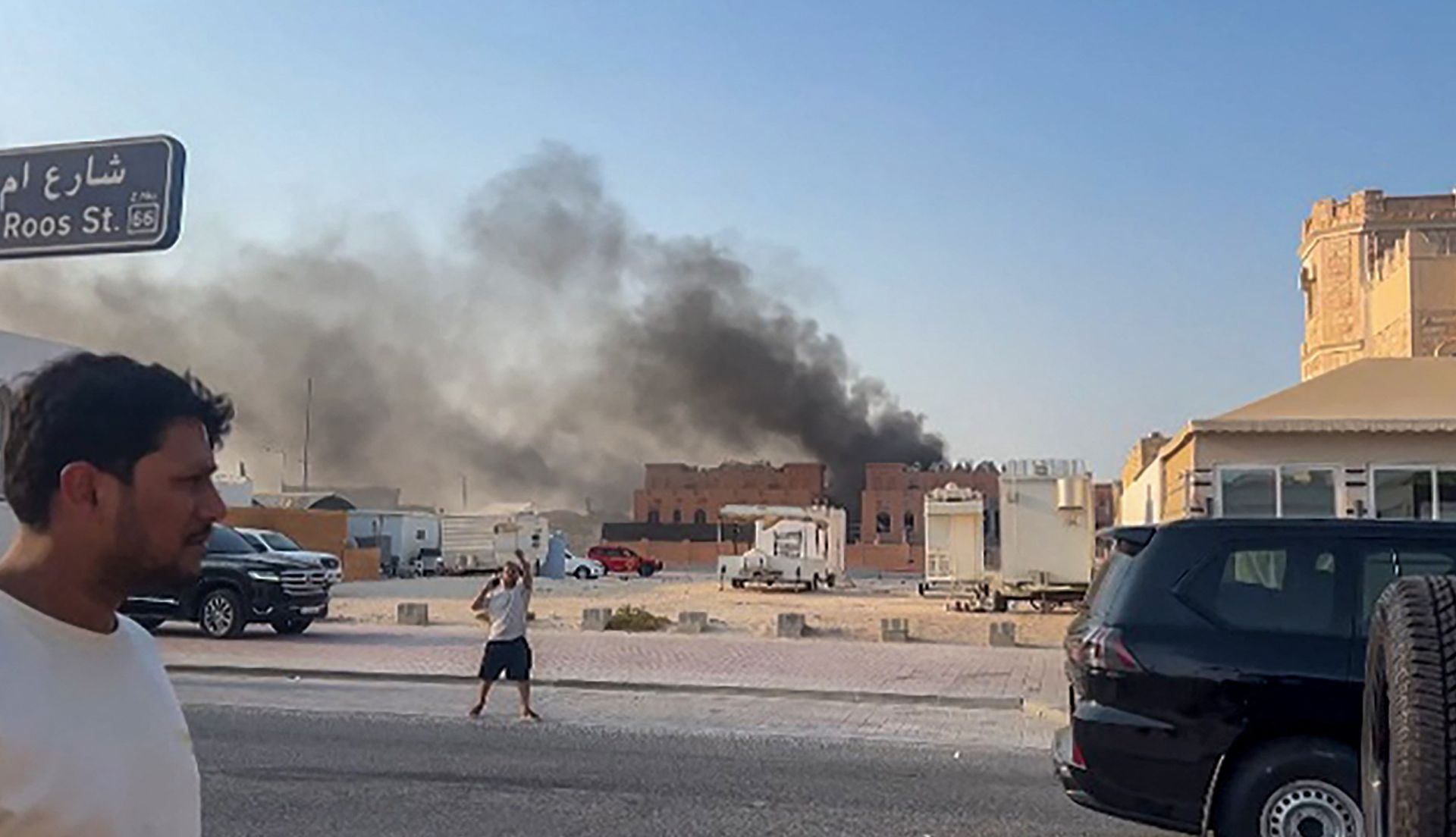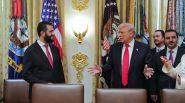- Home
- Middle East
- Israel’s Doha Strike on Hamas Reshapes Diplomacy

©AFP
Israel carried out on Tuesday a large-scale airstrike in the Qatari capital, Doha, targeting senior Hamas officials. The attack killed six people and immediately sparked international reactions, including a rare public criticism from US President Donald Trump of his ally, Israeli Prime Minister Benjamin Netanyahu.
A Symbolic Target
Initial reports indicate the strike hit an apartment where members of Hamas’ political bureau were gathered, including chief negotiator Khalil al-Hayya and other senior figures. Israel said the operation was carried out in retaliation for Monday’s attack in Jerusalem, which killed six people.
Hamas confirmed the deaths of six individuals, including al-Hayya’s son, several bodyguards and a Qatari officer, while insisting that none of its top negotiators had been killed. Israeli sources quoted by The Jerusalem Post described the strike as a major blow to the group’s leadership, though political chief Khaled Meshaal is believed to have survived.
Israel’s Doha Strike on Hamas Reshapes Diplomacy pic.twitter.com/tiU8UGLPVZ
— This is Beirut (@ThisIsBeirut_) September 10, 2025
A US Ally Under Fire
The strike sent shockwaves through diplomatic circles. Doha, home to the largest American military base in the region and a long-standing mediator between Israel and Hamas, had never been targeted before by an Israeli operation.
“This was not an attack on Qatar but on Hamas,” said Danny Danon, Israel’s ambassador to the United Nations.
“We do not always act according to US interests. We closely coordinate with Washington. They provide us with incredible support, which we value, but sometimes we independently make decisions and inform the United States afterward,” Danon told Israel’s 103 FM radio.
The Qatari government condemned the strike as a blatant violation of its sovereignty and warned that it “reserved the right to respond.”
Donald Trump’s Fury
The operation also prompted an unusual response from the White House. Trump, a staunch supporter of Israel’s actions against Hamas, expressed his “deep displeasure.” “I am not happy with the situation,” he told reporters, noting that he had not been informed beforehand.
Trump said he had contacted the Emir of Qatar, but it was too late: the call took place while attacks were already underway in Doha. He assured Sheikh Tamim bin Hamad Al-Thani that “this will not happen again.”
Netanyahu claimed responsibility for the strike, insisting it was no longer acceptable for Hamas leaders to “enjoy immunity wherever they are.” He added that the operation could pave the way for a hostage agreement and help revive efforts toward regional normalization.
Israeli Press Divided
Divisions persist within Israel’s political and media circles.
Haaretz emphasized that the operation, conducted far from Gaza, broke a longstanding diplomatic taboo by striking on Qatari soil. The newspaper warned of immediate risks to hostages still held in Gaza and highlighted the uncertainty surrounding ongoing negotiations, noting that Doha had already threatened to withdraw from its mediating role.
The Jerusalem Post offered a contrasting perspective. According to Israeli sources, targeting Hamas figures abroad could paradoxically advance negotiations by weakening hardliners opposed to any agreement. The paper also reported that Mossad chief David Barnea had cautioned against the timing of the strike.
The Times of Israel described the strike as a “mega-event,” noting that Hamas leaders in Doha had previously considered themselves untouchable. The media outlet questioned the implications for hostages and Doha’s ability to continue mediating after such a bold move.
Beyond the operation itself, the message is clear: Israel no longer recognizes any safe haven for Hamas, even at the risk of straining its strategic alliances.
Read more




Comments